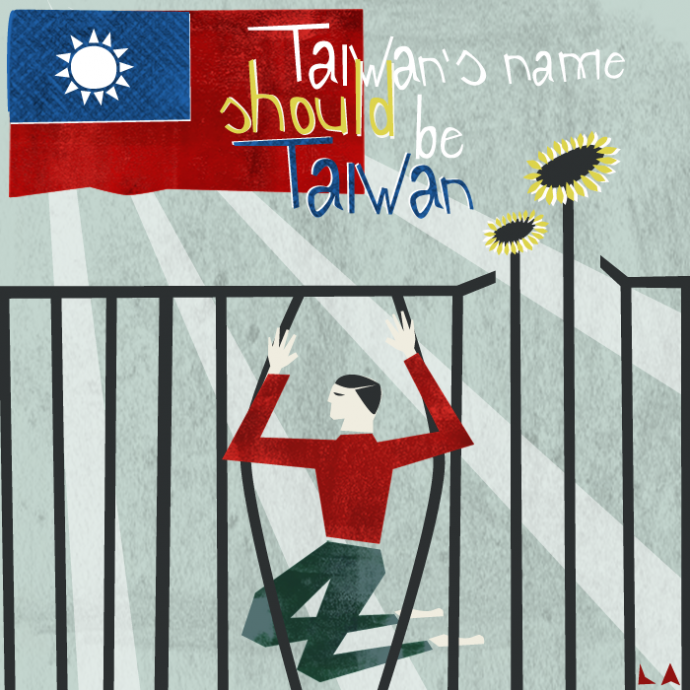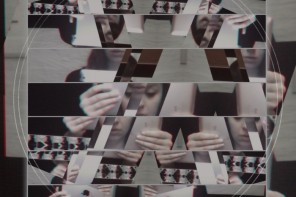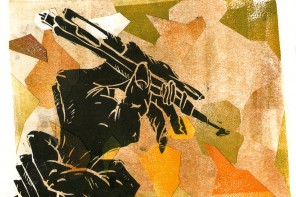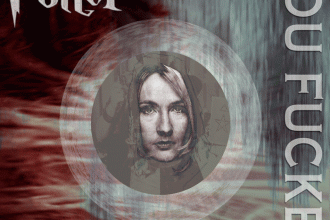On March 18th, 2014, for the first time in Taiwan’s history, hundreds of students barricaded Taiwan’s legislature, blocking the entrance in protest of ruling party Kuomintang (KMT)’s push for a trade pact with China—something which demonstrators claim will hurt the island. Five days later, the government’s Executive Yuan (where the premier’s office is located) was ‘invaded’, which eventually led to more than a hundred people injured and about sixty arrested, but also forced the government to slow down the proposed procedure.
For the first time, the young generation of Taiwan marked a new progression of democracy. Dennis Wei, one of the leaders of the Sunflower Student Movement, shared not only the details of the protest movement, but also his young generation perspective on an important issue: Taiwan’s independence.
I was born to be a part of my ‘ex-political prisoner family’.
My grandfather, Yang Kui, was a prominent proletarian novelist in Taiwan who actively attended social movements and peasant movements under Japanese rule. After the Second World War, when the KMT government lost a civil war with China’s communist party, the KMT party escaped from China and ‘occupied’ Taiwan. Many civilians eventually protested KMT’s new laws, and more than 20 000 people were killed by the government. Yang Kui thus wrote Declaration of Peace, trying to reduce the conflict between the Mainlanders and the Native Taiwanese. Nevertheless, he was ‘taken away’ in the early morning while sleeping, and sentenced to death; this was later reduced to twelve years imprisonment.
My father’s uncle, Wei Ting-chao, was also imprisoned for almost two decades, just because he was one of the writers of A Declaration of Formosan Self-Salvation, which called for a new government. This happened in old dictatorship days, but kept reminding my parents, who were dedicated activists, how precious democracy is. My mom, a university history professor, even took me to the demonstration of the the 1988 Peasant Movement when I was still in her belly, and later held my hand while demonstrating on the street in protest of the military interfering in political affairs.
That was my childhood. I didn’t really get involved in the social movement myself until I entered the university, but I read a lot about history and how a country should be. I chose the major Interdisciplinary Program of Humanities and Social Sciences, which created an environment for professors and students to discuss and care about society issues.
In 2008, when ex-president of the Association for Relations Across the Taiwan Straits Chen Yunlin visited Taiwan from China, this caused huge demonstrations and conflict between the police and the people. All of society worried that Taiwan would depend too much on China, and were also concerned about the problem of excessive force from the police. My mom then told me to think about getting more involved with what was happening in our country. It was enlightening for me to attend a society movement based on my own free will, and I realized how important that opportunity is.
I started committed myself to social movements, no matter what field they belonged to: political, cultural, or general. I published a campus magazine called Radical Paper with friends, discussed student self-government and campus democracy, and went around Taiwan for different kinds of demonstrations.
Okay, time to talk about the headline. There was actually a long build-up to the attempt to occupy legislature. The KMT government signed the Cross-Strait Service Trade Agreement with China in June 2013 without procedural justice. Usually, when this kind of agreement is signed, the countries’ parliaments have the function of check and balance, and the governments can communicate with the industries who might be negatively affected. However, the procedure of making the Cross-Strait Service Trade Agreement had been hidden from citizens from the beginning, and this provoked anger.
What really encouraged us to occupy the legislature was when the KMT lawmakers broke the negotiations between the opposite party, the Democratic Progressive Party (DPP), that the agreement should be gone through item by item. They ignored the boycott, and directly passed it by reading it in the toilet. Such a controversial agreement was passed in this shit way, in thirty seconds, with blatant disregard for democracy. Those lawmakers were only submissive to their party, instead of caring about their people and their country. We had to do something. We had to avoid this continuing, and the only way was to disable the function of the legislature.
On the fifth day of the occupation, I was on my way to the legislature. I had seen on the Internet that people were now climbing over the wall and the roadblocks, entering the Executive Yuan. They were asking for help. At the moment, I decided to go to the Executive Yuan. When I arrived, it was full of people and armed police. It was such chaos that I wanted to help control the situation. I spoke into a microphone, trying to calm people’s emotions, and held a press conference warning the police not to eject people in any violent way. We just aimed to exercise our right to democracy.
Three to five thousand policemen were there to combat the bare-handed students, some of whom were dragged behind the riot shields, and suffered devastating violence. The police also sprayed protesters with huge water hoses, knocking them over. The police were totally in a frenzy. That was the darkest day in democratic Taiwan.
In my knowledge, since 1980s democratization in Taiwan, it had been rare to see so many riot police fighting peaceful demonstration. Unfortunately, I feel that the democracy of Taiwan is now in a regressive phase. The right of assembly and procession is shrinking; the right of police grows too much. The country has less and less patience for listening to its people.
In my depths of my heart, I know the disputes and quarrels that happened now were all because of our great enemy, China.
The issue of remaining independent from China is not only a military or a purely political problem anymore. China started making Taiwan economically rely on it more and more deeply. For example, the Cross-Strait Service Trade Agreement would enable huge quantities of funds and laborers to enter Taiwan, bringing with them security problems. In the end, China could easily manipulate the governmental officers making the laws in order to benefit China. It would be virtual unification; we would become a vassal. This is the real urgent crisis we want to prevent.
In my opinion, the traditional concepts of ‘independence’ and ‘unity’ do not fit the reality anymore. Fewer and fewer people are in support of unifying, and the young generation doesn’t want to be unified. But our goal of so-called ‘independence’ is not exclusively due to hatred of China anymore. What we want is to emphasize the political reality and national subjectivity, to normalize the country. For example, the territory in the Constitute of Taiwan still covers ‘Mainland China’, which is totally ridiculous and out of touch with reality. The government won’t face the music, and that’s why the agreement became an ‘Executive Order’ instead of an international agreement between two countries.
If we look back to developments in history, Taiwan is still symbolically dominated by a ‘foreign regime’: the Republic of China government, which was not created in Taiwan. I don’t want my country to be controlled and interfered with by foreign powers. I’m Taiwanese, and my country’s name is supposed to be Taiwan. I hope people can preserve Taiwan’s history, culture, locality, and sovereignty, all of which created our present and future. We have to embrace them—but not the concept of ‘Greater China Culture’.
The fear of rich, powerful Taiwanese is not war with China, but the loss of money and benefits. To keep their political and economical power, those in power in Taiwan spread threats such as “If we don’t cooperate with China, they will declare war… ” But if Taiwan really starts walking the path of independence, we won’t put ourselves in the way of such a direct and stupid risk! ‘War’ is the word with which the politicians and powerful people of Taiwan motivate citizens to cooperate with Chinese interests.
The tears and blood that the Taiwanese donated to achieve democracy obviously wouldn’t create change in communist China. I want to retain the lifestyle I have now: one in which people respect each other and value freedom of speech. I don’t want to live a Chinese-style life in which even what I post on the Internet has to be controlled.
This is the reason that we have to leave no stone unturned to protect the precious, fragmented democracy of Taiwan, my lovely country.







